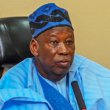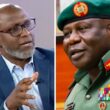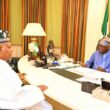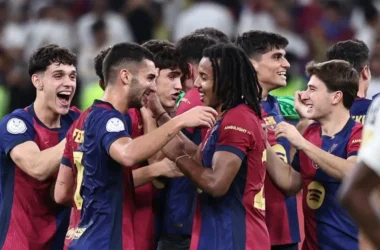The Nigerian Professional Football League (NPFL), once a breeding ground for top African football talents, is undergoing a slow but promising transformation. Despite decades of underinvestment, poor infrastructure, and administrative mismanagement, the league has remained a vital part of Nigeria’s football culture. Today, there’s renewed optimism that the NPFL can become a major pipeline for national team success.
A Rich History and Struggles for Relevance
Nigeria’s domestic league has produced legends such as Rashidi Yekini, Stephen Keshi, and Daniel Amokachi, who all began their careers in local clubs before moving to the global stage. In the 1980s and 1990s, clubs like Enyimba FC, Shooting Stars, and Rangers International dominated the West African football scene.
However, over the years, foreign leagues have attracted Nigeria’s brightest talents at increasingly younger ages. Poor funding, irregular player salaries, inadequate stadium facilities, and a lack of consistent media coverage have contributed to the decline of the NPFL’s reputation.
Signs of Progress and New Initiatives
In recent years, efforts have been made to revive the NPFL. The League Management Company (LMC) has introduced reforms focused on transparency, professionalism, and marketing. Broadcast partnerships with local and international platforms have also improved access to NPFL games, helping re-engage fans.
There is also a growing trend of players rejecting early moves abroad in favor of first establishing themselves in the local league. Clubs like Remo Stars, Enyimba, and Bendel Insurance are investing in youth academies, modern training facilities, and coaching development programs. These initiatives aim to nurture homegrown talent capable of competing both domestically and internationally.
Prospects for National Team Integration
One of the biggest challenges for Nigeria’s Super Eagles is overreliance on foreign-based players. While Europe offers better training and exposure, many national team stars have minimal connection with Nigerian football culture or conditions. Integrating top-performing NPFL players into the national team setup could bridge this gap.
Coaches like Finidi George—appointed as Super Eagles head coach in 2024—have advocated for increased scouting within the NPFL. His experience both locally and internationally places him in a strong position to understand the value of homegrown players.
Already, players like Divine Nwachukwu (Bendel Insurance), Sodiq Ismail (Remo Stars), and Chidiebube Duru (Rivers United) have been invited to the national team. Their performances in international friendlies and CHAN tournaments suggest that the local league can provide strong, disciplined, and motivated players.
Benefits of Promoting Local Talent
• Cultural Cohesion: Local players are more attuned to Nigerian football culture, fan expectations, and environmental conditions such as heat and pitch quality.
• Motivation for Others: Seeing NPFL players break into the national team provides hope for thousands of young athletes across the country.
• Economic Development: Strengthening the domestic league boosts local economies through job creation, tourism, and commercial investment.
Challenges Ahead
Despite progress, obstacles remain. For NPFL players to consistently feature in the Super Eagles, the league must address:
• Timely payment of salaries
• Improved officiating and league integrity
• Better medical and fitness support
• More international exposure for clubs and players
Conclusion: The Time is Now
The Nigerian local league holds untapped potential that could redefine the future of the national team. By creating a strong domestic foundation and integrating local talents into the Super Eagles, Nigeria can build a team that not only competes globally but also reflects the soul of the nation’s football spirit. With consistent investment and strategic planning, the NPFL can once again become a proud symbol of Nigerian excellence on the world stage.
By Ibrahim Bature Sallama
Empowered Newswire- Sports Editor










